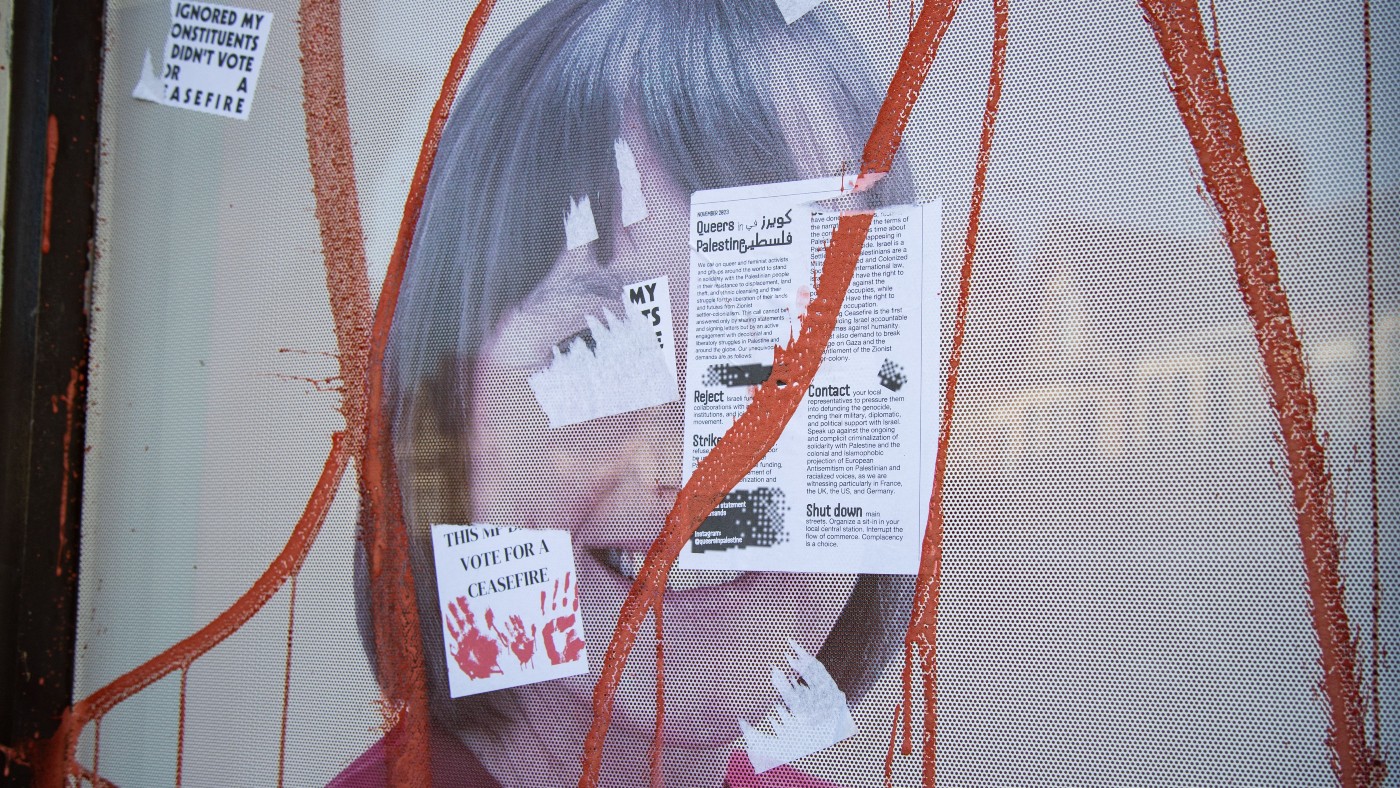Threats to MPs: have we reached mob rule?
Speaker Lindsay Hoyle said security concerns for MPs made him break with parliamentary tradition and spark Commons chaos

A free daily email with the biggest news stories of the day – and the best features from TheWeek.com
You are now subscribed
Your newsletter sign-up was successful
A row over parliamentary procedure has reignited concerns about the safety of MPs, after Commons speaker Lindsay Hoyle said security worries led him to break with precedent.
Angry MPs walked out of the chamber in protest at the speaker's handling of the Gaza debate after Hoyle allowed amendments from both the government and Labour on the SNP's motion calling for a ceasefire in the Gaza conflict. His decision sparked fury from MPs that "descended into borderline hooliganism", said Politico, with scenes of the sort "we haven't witnessed in the Commons since the darkest days of the Brexit Wars".
Hoyle said he made the controversial decision because of fears for the "safety of MPs and their families".
The Week
Escape your echo chamber. Get the facts behind the news, plus analysis from multiple perspectives.

Sign up for The Week's Free Newsletters
From our morning news briefing to a weekly Good News Newsletter, get the best of The Week delivered directly to your inbox.
From our morning news briefing to a weekly Good News Newsletter, get the best of The Week delivered directly to your inbox.
Public life is 'drowning in hate'
Hoyle suggested that not allowing Labour MPs the option to vote for their party's new amendment, which called for an "immediate humanitarian ceasefire", could have increased threats from their constituents, said Josh Self for Politics.co.uk. One such incident occurred last November, said the BBC, when the Cardiff office of shadow Welsh secretary Jo Stevens was "daubed in red paint and covered in posters which accused her of having 'blood' on her hands after she abstained in a vote on a ceasefire".
Concern over MPs' safety is "a really serious principle", said Isabel Hardman in The Spectator, and one that needs "proper debate". As Tory MP Charles Walker stressed on Wednesday, a "far bigger issue" than parliamentary procedure is if MPs "are changing their votes or their behaviour" in the Commons "because they are frightened".
Scaring MPs in this way is "not how democracy works", said Hardman. Yet Hoyle's action has sent a message that by applying pressure to members, people can "force democracy to move through threats".
Public life is "drowning in hate", with harassment of political representatives "increasingly being normalised", said Labour MP Stella Creasy in an article for The Guardian. "Every MP has not just the shadow of the deaths of our beloved friends David Amess and Jo Cox looming in our thoughts, but also knowledge of the day-to-day violence our colleagues experience."
A free daily email with the biggest news stories of the day – and the best features from TheWeek.com
MPs have 'brought Parliament into disrepute'
The safety of MPs has "seldom been cited" as a factor in influencing which motions should be voted on in the chamber, said Politico. Hannah White, director of the Institute for Government think tank, said it was "difficult to think of a precedent" for such a move.
"It can't be right for security risks to be managed by parliamentary procedure," she told the news site. "It's up to the parties to think about what questions they ask MPs to decide, and it's up to the House and the police to protect MPs."
Another key issue is "how the chaotic scenes in the Commons will have looked for anyone with a genuine interest in the substance of the debate", said White on the Institute for Government site.
"Political game-playing over parliamentary procedure is unedifying at the best of times, but for parliamentarians to behave in this way during a debate about a conflict in which tens of thousands are dying has undoubtedly brought Parliament into disrepute."
Sorcha Bradley is a writer at The Week and a regular on “The Week Unwrapped” podcast. She worked at The Week magazine for a year and a half before taking up her current role with the digital team, where she mostly covers UK current affairs and politics. Before joining The Week, Sorcha worked at slow-news start-up Tortoise Media. She has also written for Sky News, The Sunday Times, the London Evening Standard and Grazia magazine, among other publications. She has a master’s in newspaper journalism from City, University of London, where she specialised in political journalism.